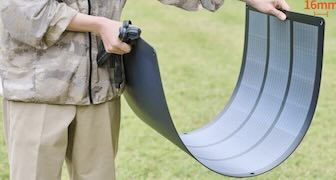Mar 24 (Japan Times) - The quirky comet ‘Oumuamua, the first interstellar object found visiting our solar system, has been the subject of fascination since being spotted in 2017, including its curious acceleration as it hurtled away from the sun.
Hypotheses were floated in light of its unexpected behavior, including fleeting speculation that it might actually have been an alien spacecraft. A new study has offered a more sober explanation — that ‘Oumuamua’s speedup was due to the release of hydrogen gas as the comet warmed up in the sunlight.
‘Oumuamua lacks the tail of gas and dust characteristic of many comets. It was previously described as being cigar-shaped but now is thought to resemble a rocky pancake. Smaller than originally estimated, it is now pegged at approximately 115 meters by 111 meters, with a thickness of about 19 meters. ...continue reading















